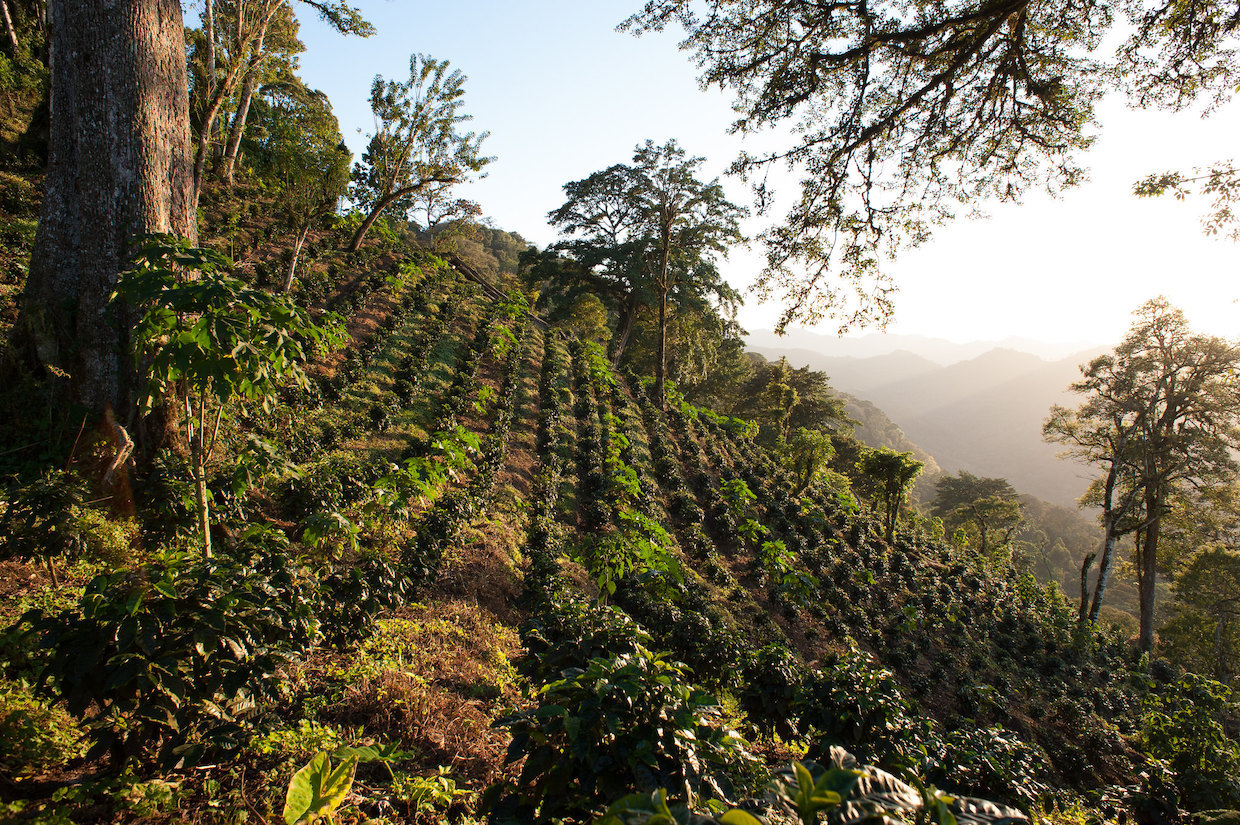
“Sunshine on coffee” by skinnydiver is licensed under CC BY-SA 2.0.
Coffee production throughout Nicaragua is expected to remain relatively flat in market year 203/24 as compared to the previous year.
While the cost of fertilizer has receded — offering farmers some relief following record-high input prices precipitated by COVID-19-related disruptions as well as Russia’s war in Ukraine — climate shocks, a lack of institutional support and migration of laborers remain threats to Nicaragua’s coffee production.
These are some of the main takeaways from the most recent USDA Foreign Agriculture Service (FAS) report on the Nicaraguan sector.
[Note: This is part of a series of DCN stories exploring the FAS coffee annual reports. The U.S. information agency is currently scheduled to deliver 16 annual country-level reports on the coffee sector. Each of those reports come from different authors and field offices.]
The agency expects Nicaraguan arabica production to remain approximately flat at 2.46 million 60-kilo bags, reflecting subsequent years of sub-optimal fertilizer application. The estimate is likely to fluctuate based on El Niño conditions in the second half of 2023.
“In addition to El Niño, climate change is a growing concern for the Nicaraguan coffee industry, as extreme weather events are more frequent and more severe,” the report states.
The availability of laborers for coffee harvesting is also expected to be a major factor in Nicaragua’s output in the coming year.
“Outbound migration remains well above historical levels — an estimated 200,000 Nicaraguans, or 4 percent of the population, fled in 2022 — due to the continued deterioration of political conditions in Nicaragua,” the report states. “Producer organizations have expressed concerns that insufficient labor supplies could reduce MY 2023/24 harvest quality and quantity.”

“View from Finca Esperanza Verde, Matagalpa, Nicaragua” by bluesonicboy is licensed under CC BY-SA 2.0.
Despite such challenges, Nicaragua maintains a strong international reputation for high-quality arabica coffee, obtaining price premiums in market year 2022/23 of $30 to $50 per 60-kg bag above global commodity prices.
“Exporters indicated that sustained prices above $180 per 60-kg bag in 2023 — the average price for Nicaraguan coffee in April 2023 — could support improved farm management (principally, increased fertilizer application) and drive production back above 2.7 million 60-kg bags in MY 2024/25,” the report states.
The United States remains by far the largest export market (45% by volume) for Nicaraguan coffee, followed by Europe (22%).
“The majority of Nicaraguan coffee exports to the United States are high-quality Arabica beans, which are in high demand among specialty coffee roasters and cafes,” the report states. “Some of the top importers of Nicaraguan coffee in the United States include Starbucks, Peet’s Coffee, and Dunkin’ Donuts.”
The FAS report notably reported an “uncertain” business climate in Nicaragua due to the ongoing political turmoil.
“On March 7, 2023, the Nicaraguan government canceled the legal status of the Private Sector Superior Council (COSEP) along with 19 individual industry associations, including the Nicaraguan Association of Coffee Exporters (EXCAN), which will hinder the ability of coffee exporters to collaborate and advocate as a sector,” the report states. “Nicaragua lacks a comprehensive national coffee development strategy, and independent analysts note the loss of EXCAN as one less institutional pillar supporting an industry with significant growth potential across a wider range of production areas.”
Does your coffee business have news to share? Let DCN’s editors know here.






Comment